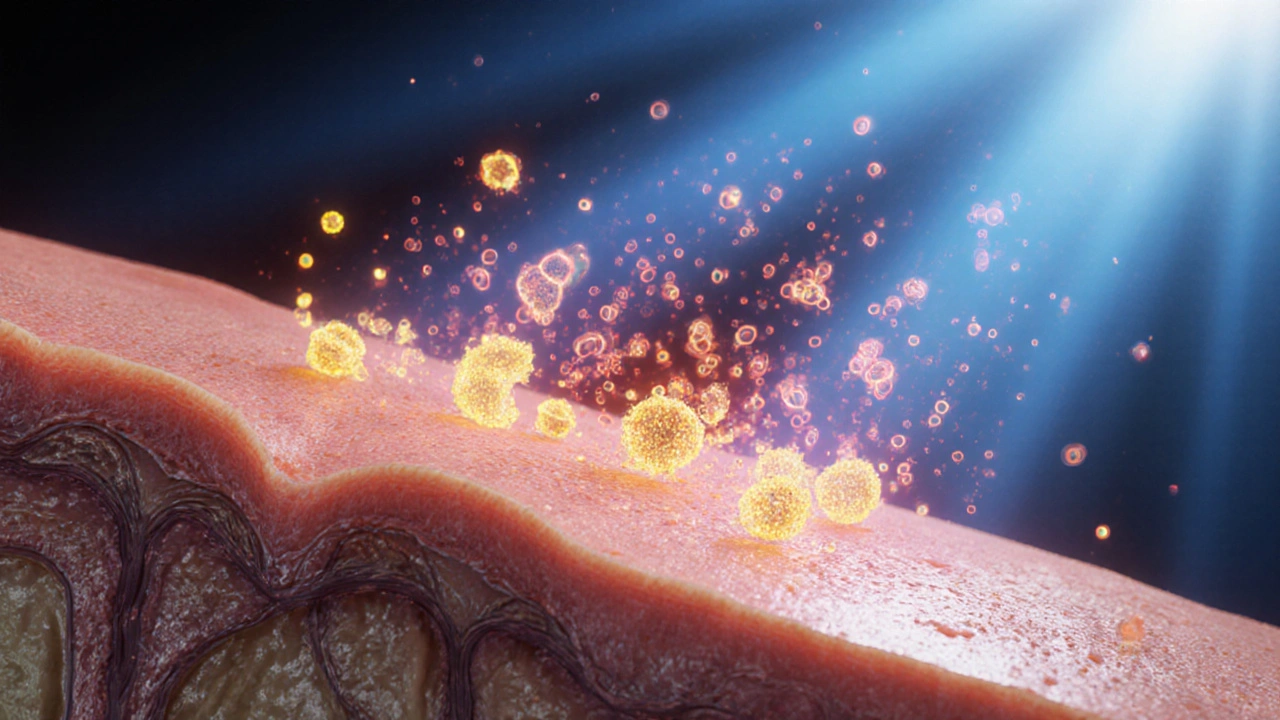Antioxidants – Your Body’s Defense Against Oxidative Damage
When you hear Antioxidants, molecules that neutralize harmful free radicals in the body. Also known as oxidation inhibitors, they work by donating electrons to unstable compounds, turning them harmless.
Free radicals are highly reactive by‑products of metabolism that can damage cells, proteins, and DNA. Free radicals, unstable atoms that seek electrons spark a chain reaction called oxidative stress. This stress is linked to aging, heart disease, diabetes, and even mood disorders. Antioxidants break that chain, restoring balance and supporting recovery.
Among the most studied antioxidants are Vitamin C, a water‑soluble vitamin that scavenges free radicals and regenerates other antioxidants and Polyphenols, plant‑derived compounds found in berries, tea, and herbs. Vitamin C fuels the immune system, helps collagen formation, and keeps iron from becoming toxic. Polyphenols, such as flavonoids and resveratrol, protect blood vessels, modulate inflammation, and may lower cancer risk. Together they illustrate the semantic triple: Antioxidants → combat → Free radicals; Vitamin C → is a → type of antioxidant; Polyphenols → support → cell health.
Why Antioxidant Knowledge Matters Across Health Topics
Understanding antioxidants gives you a lens to evaluate many of the guides on this page. For instance, the comparison of natural supplement alternatives like Styplon or pennyroyal often highlights antioxidant content as a selling point. When we discuss chronic conditions—heart failure, diabetes, or even postoperative inflammation—the role of oxidative stress is a common thread. Recognizing that free‑radical damage fuels inflammation helps you see why a supplement rich in polyphenols or vitamin C might be recommended alongside prescription drugs.
Our collection also includes detailed drug comparisons, from antibiotics to antihistamines. While those articles focus on efficacy and safety, they regularly note side‑effects that stem from oxidative stress, such as gastrointestinal irritation or skin reactions. Knowing that antioxidants can mitigate some of these side‑effects lets you make more informed choices about treatment plans.
Whether you’re a patient looking for ways to support recovery, a caregiver balancing multiple therapies, or just curious about the science behind a bright‑colored berry, the antioxidant angle ties everything together. Below you’ll find practical comparisons, dosage tips, and safety alerts—all filtered through the lens of how free radicals affect health and how antioxidants can help keep you on the right side of that balance.
Sunburn and Nutrition: How Your Diet Protects Your Skin
Learn how specific nutrients and daily foods boost skin resilience against sunburn, with practical meal plans, hydration tips, and a clear FAQ.
Read more
